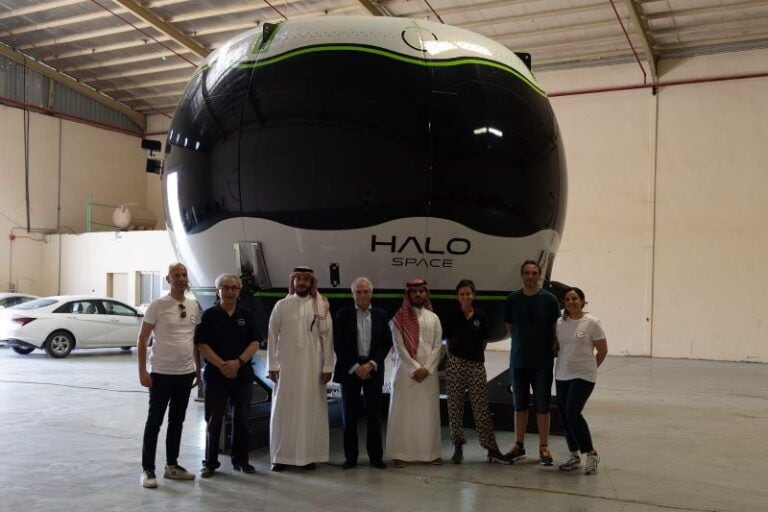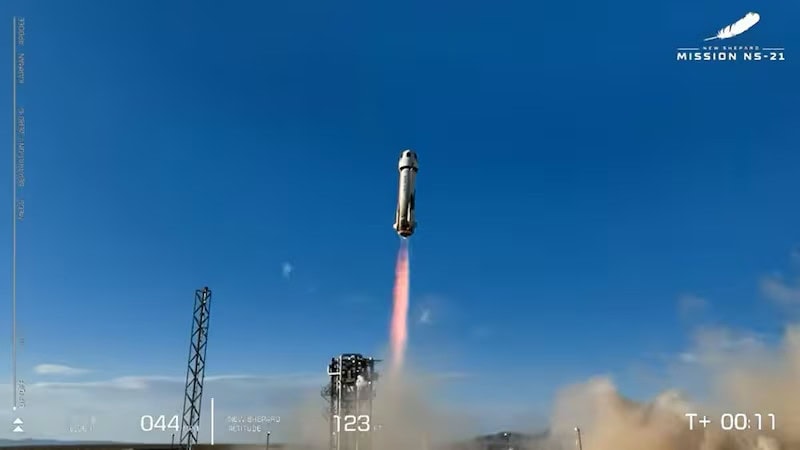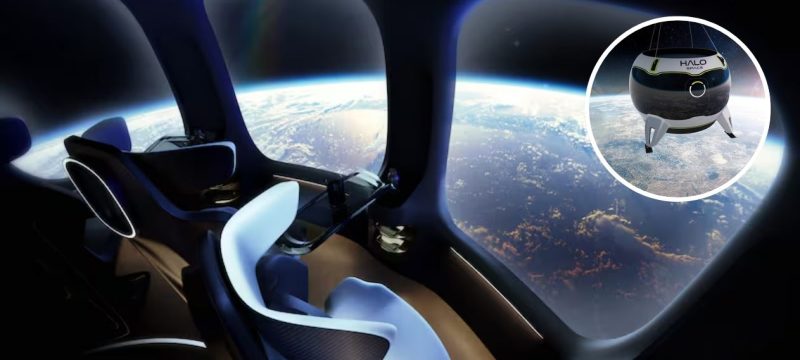A Spanish company, Halo Space, is preparing to launch around 100 balloon-powered space capsule flights annually from Saudi Arabia, starting commercial operations in 2026. After completing five test flights in India and California, their next flight is scheduled in Saudi Arabia’s desert between September 27 and 30.
These flights, also launching from the US, Spain, and Australia, will take passengers 35km above Earth using large helium balloons, allowing them to view the Earth’s curvature against the blackness of space without experiencing weightlessness. Tickets are priced at €150,000 ($167,000).
Read more: Top 6 Key Announcements from Meta at Meta Connect 2024
Carlos Mira, Halo Space’s CEO, stated that the company is setting up in Saudi Arabia to build and test its Aurora capsules, which can carry up to eight passengers and a pilot. The goal is to boost Saudi Arabia’s space tourism industry and develop its space ecosystem with at least 100 flights per year.

Mr. Mira noted that the space flights could also boost Saudi tourism, as customers could spend one day on the flight and the rest exploring the kingdom.
The company has a waiting list for ticket sales and has sold 11 tickets under its Pioneers program, which allows early flyers to provide feedback on their experience.
Halo Space’s tickets are priced higher than US competitor Space Perspective, which charges $125,000 for a similar trip launching from Florida. Both offer luxury experiences, with panoramic views, fine dining, and premium seating. However, Halo Space will lift off and land on solid ground, while Space Perspective’s Neptune capsule launches from a ship and splashes down in the ocean.
Mr. Mira added that Halo Space will tailor each passenger’s experience, including their launch location, to offer a personalized journey.
What Passengers Experience:
A Halo Space flight lasts four to six hours, with a smooth helium balloon ascent taking about 90 minutes. At a peak altitude of 35km, passengers enjoy panoramic Earth views and fine dining. The descent involves releasing the helium balloon and deploying braking parachutes for a gentle ground landing.
Mr. Mira assured that the flight has three safety systems, including deployable parachutes and emergency controls, which can be activated if needed. He emphasized the low likelihood of serious accidents.
Space tourism boost:
Aerospace engineer Sahith Reddy Madara noted that these balloon-powered trips are more affordable than those offered by Blue Origin and Virgin Galactic. If successful in the desert’s unique conditions, they could make space tourism more accessible to a wider audience in the future.

Unlike the high-cost, rocket-based experiences from companies like SpaceX and Blue Origin, Halo Space offers a more affordable and sustainable alternative. Blue Origin’s suborbital rocket flights reach altitudes of 100km, allowing a few minutes of weightlessness, though ticket prices remain undisclosed, with one seat once auctioned for $28 million. Virgin Galactic previously charged $450,000 for flights to 88km before halting operations in June.
Anna Hazlett, founder of UAE-based AzurX, shared her excitement about Halo Space’s upcoming test flight in Saudi Arabia, noting it could establish the kingdom as a regional leader in space tourism. Though Blue Origin and Virgin Galactic have shown interest in the Middle East, no operations have started yet.









